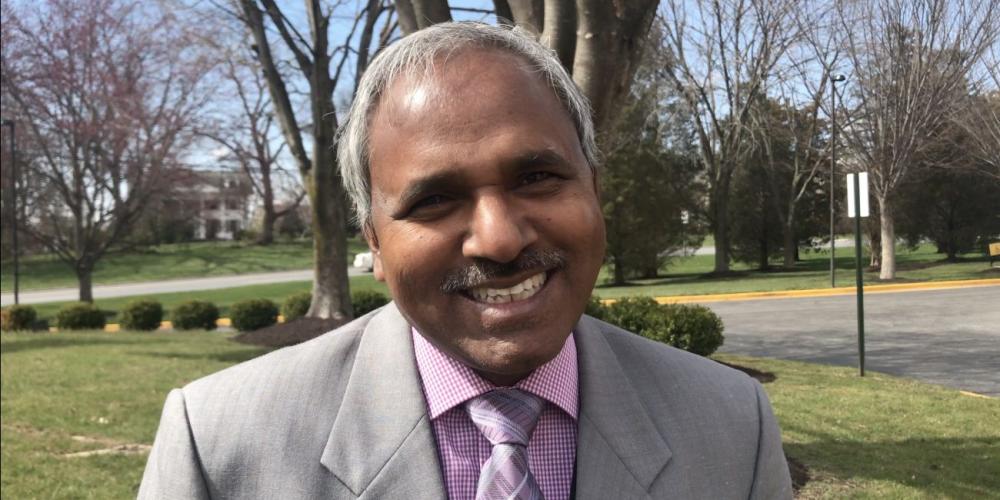Snakebite Transforms Indian Village
Villagers had no doubt that the snake god was punishing Sundar Rao for following the white man’s God.
Sundar Rao, a 27-year-old farm worker, was intrigued when a white man showed up at his Indian village and sang under a tree on Saturdays.
Villagers asked the man, U.S. missionary Theodore R. Flaiz, what he was singing, and he replied that he was worshipping the Creator God. Sundar wanted to see this God, but the white man had no idol to show. Instead, he read stories from a black book.
Sundar was attracted to the stories of the Creator God and decided to follow Him.
The landlord, for whom Sundar worked, was furious when the young man didn’t go to the field the first Sabbath. When he came on Sunday, he was barred from working. No work meant no food.
Despite the serious repercussions, Sundar kept missing work on Saturdays. The landlord’s anger grew, and he increased the workload.
At the same time, Sundar faced trouble at home. He stopped participating in family religious festivals, including the worship of Naga, a snake god.
After some time, Sundar decided that the only way to return peace to the home would be to break away from his traditional joint family, anextended familyarrangement in India where many generations live in the same household. He built a house just beyond the brook that marked the village’s border. Soon he got married and had a daughter.
Also by this author: White Man With a Crooked Stick
Work After Sabbath
One day when he was 29, the landlord asked him to work on a Saturday after sunset. Bales of hay needed to be prepared for sale.
“After your worship ends on Saturday, come and help count bales of hay,” the landlord demanded.
Sundar reluctantly obeyed. He arrived at the field after sunset but before darkness had set in. With help from others, he counted the bales.
After the count was finished and the hay was sold, Sundar noticed a small bale of hay off to one side and, without paying serious attention to it, kicked it toward a larger bale. In a split second, a young cobra sprang from the bale and struck him on the leg. Then the snake darted into a nearby bush and escaped.
Sundar knew he would die soon. No medical help was available in the village, and the nearest medical clinic was 7 miles (12 kilometers) away. The quickest way to travel there would be by bullock cart, but it would be too late by the time he arrived.
Sundar sat down, outwardly calm and ready to die. Inwardly, however, he worried about the future of his wife and daughter and desperately spoke to God. “Why did You allow a snake to bite a Sabbath-keeper?” he prayed. He wondered whether the Naga god was angry.
Other villagers had no doubt that Naga was punishing Sundar.
“Naga is very angry at you,” one said.
“It’s because you disobeyed all the village gods,” said another.
Also by this author: Disowned Nepali Teen Wins Souls Through Volleyball
Waiting to Die
Sundar started to sweat. Formerly estranged family members gathered around him and wept. The village waited for him to close his eyes and die.
But nothing happened. An hour passed. Two hours. A snakebite specialist was summoned to check his leg. The specialist was astounded with what he found. He declared that the cobra had struck Sundar with the top of his mouth, not with the poisonous fangs, and had fled in fright without bothering to bite a second time.
The next day, the villagers were amazed to see that Sundar was healthy and happy.
“The protection of the white man’s God has saved him from the cobra bite,” they said.
From that moment, in 1957, many villagers joined Sundar in keeping the Sabbath.
Five years after the snakebite, I was born. Then another son and daughter were born. All four siblings remain in the Adventist faith, and my brother, Anand Babu M, and I became Adventist pastors, bringing joy to our father, who never learned to read or write.
Today, Gudem Madhavaram is an Adventist village. It has produced 40 pastors and Bible workers, and many educators and health professionals. On Saturdays, the whole village stops to worship the Creator God. This is the power of the God who turned a Saturday snakebite into a blessing.
Wilson Measapogu is executive secretary of the Seventh-day Adventist Church’s Southern Asia Division, whose territory includes India. His father died in August 2017 at the age of 77. Dr. Theodore R. Flaiz was a medical missionary who headed the Adventist world church’s medical work from 1947 until his retirement in 1966. He died in 1977 at the age of 80. To see a sheet of mission posts and fast facts from India, SUD-Facts-2020.pdf.
Wilson Measapogu praising God for his father’s faithfulness. (Andrew McChesney / Adventist Mission)





